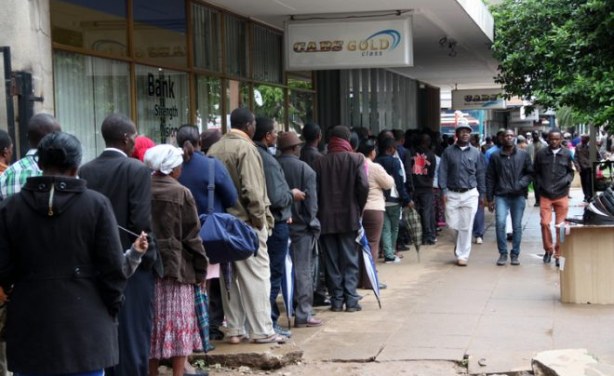Zimbabwe seeks compensation for pensioners whose savings were wiped out in 2009
Zimbabwe wants the retirement industry to help compensate pensioners who lost their savings 14 years ago following a bout of hyperinflation that led to the collapse of the local currency and its eventual scrapping in favour of the US dollar.
The switch to the greenback immediately wiped out the value of Zimbabwe dollar-denominated investments, leaving thousands of pensioners destitute. The payment of compensation is a key step toward helping restore confidence across the retirement industry, said Grace Muradzikwa, head of the Insurance and Pensions Commission, the state regulator.
“It is right, fair, proper and desirable for those affected by the loss to receive some compensation from relevant pension funds and insurers and from the state,” she said in a statement on Monday. “The industry has the capacity to compensate eligible members to the fullest extent practicable.”
The payment plan will cover the nine years through February 2009 and only apply to savings that were held in Zimbabwe dollars. Pension funds and insurers have until year-end to present the regulator with a total amount that needs to be paid to eligible pensioners. Once approved by the commission, payouts will take place from March next year.
The southern African nation’s retirement industry had Z$9.14 trillion ($1.6 billion) in assets as of June this year, with 980 854 people holding policies, according to the latest IPEC industry report. Real estate and equity investments are the main sources of income for the sector. An 800% stock market rally earlier in this year bolstered its asset base.
The country’s largest independent asset manager, Imara Asset Management, which oversees more than $100 million, warned that the government’s demand for compensation issued through IPEC could put the entire industry at risk.
The compensation framework appears to exclude the national statutory pension body, the National Social Security Authority, which isn’t being asked to offer similar payouts, according to John Legat and Shelton Sibanda, the chief executive and chief investment officer at Harare-based Imara.
“The implication is that value loss was only limited to the private, voluntary schemes,” they wrote in a note to clients last week. “Our view is this process is very convoluted and needs a serious rethink. In its current proposed and accelerated format, it will certainly lead to more industry harm.”
Read more @moneyweb











